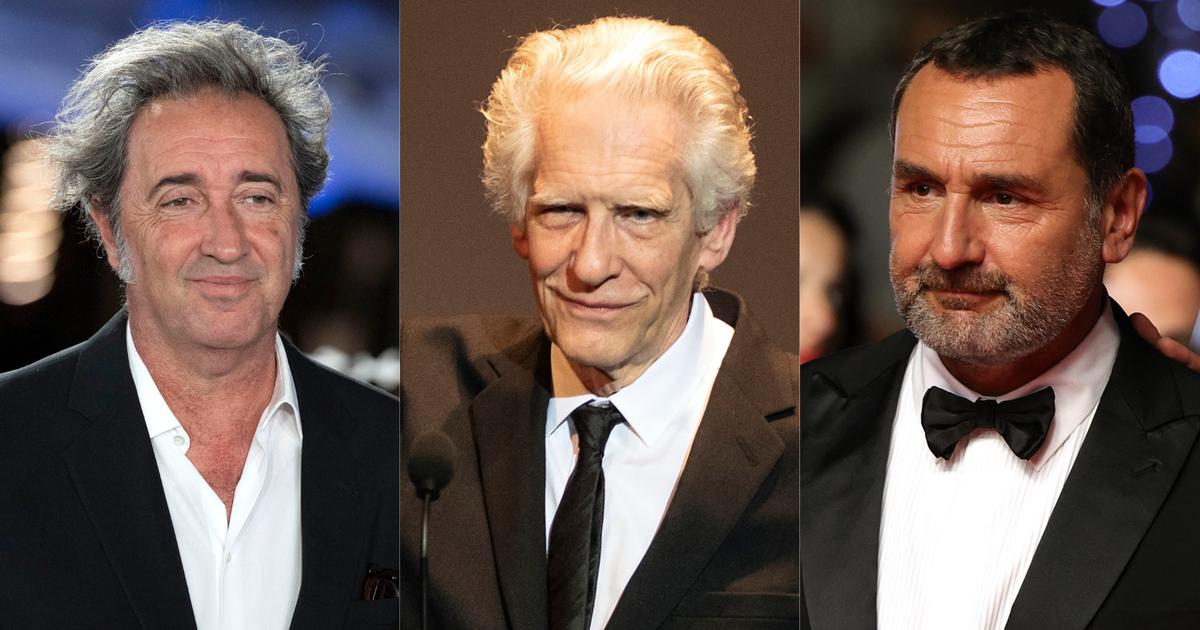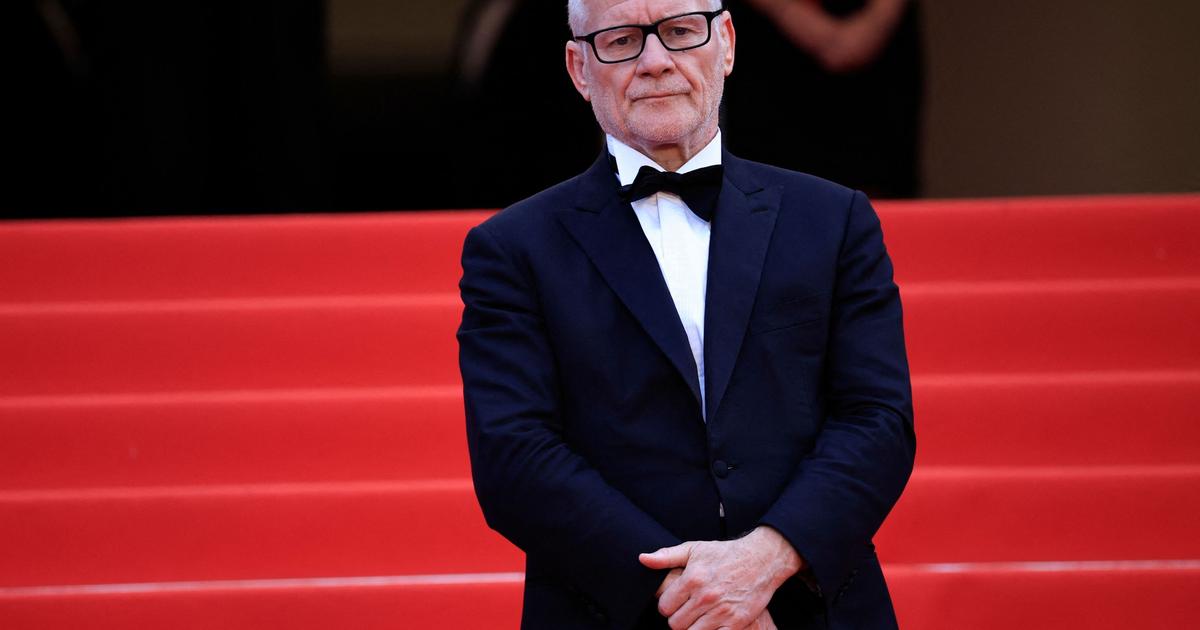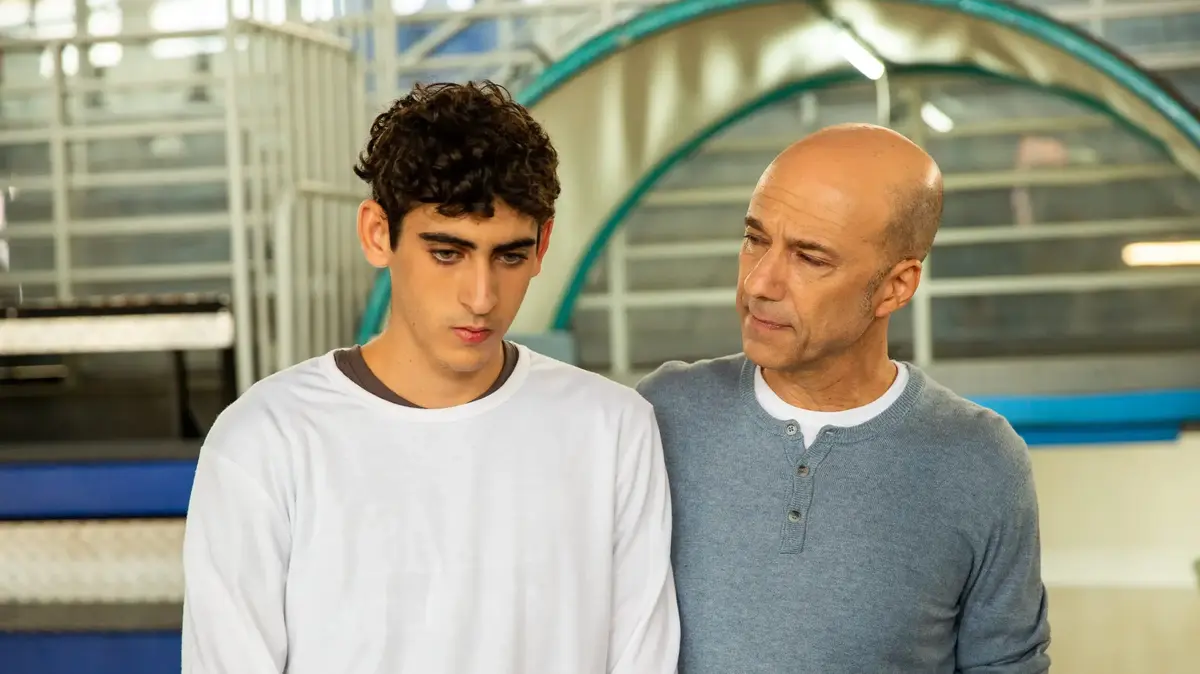Since Agnès Varda opened up the possibility of awarding Donostia awards not only to performers, but also to directors, the San Sebastián festival has increased the chances of awarding masters of today's cinema.
And in this 70th edition it was David Cronenberg (Toronto, 79 years old), an indisputable artist.
More information
Cronenberg's transhumanist audacity fascinates but knows little
Over the years, Cronenberg has become a classic filmmaker.
After more than twenty features and having given science fiction cinema a romp in any of its subgenres, Cronenberg's gaze or, better yet, his interests permeate each shot and each of his narrative decisions.
Also always surprising.
When Zinemaldia announced the awarding of the Donostia Prize, he explained in the statement that he was the "master of biological horror, of disturbing atmospheres and of a universe that is as personal as it is non-transferable."
For example, 25 years have passed since the premiere of
Crash
and few have matched his approach.
David Cronenberg greets the photographers before the press conference on Wednesday afternoon in San Sebastián.Javier Hernández
The press conference prior to the delivery this Wednesday night of the award, to which he has attended on time, began late after the filmmaker's request that the translation be done in person at his side.
No technique, a decision that would echo a career in which human bodies have been fundamental.
Minutes later, when asked about his future, he joked about why he refused to use headphones to listen to the translator: “I wear headphones and since I had cataract surgery I no longer wear my usual glasses.
Now I am bionic, I am the future.”
01:48
Trailer for 'Crimes of the Future'
Léa Seydoux, Viggo Mortensen and Kristen Stewart, in 'Crimes of the Future'.
In 2014, Cronenberg published the novel
Consumed,
and through that reference he has traveled back to his beginnings.
“When I was young I wanted to be a writer, like my father.
He was going to do novels;
What's more, I published the first one when I was 20 years old, and it's taken me half a century to write the next one.
The cinema kidnapped me.
Some time ago I thought that I was done with cinema, and the production of
Crimes of the Future
[which premiered in Cannes, is screened in San Sebastian at the Donostia award gala and opens commercially on Friday] was a surprise, because it has written 20 years
If I were to write a script that would be difficult to produce now, I would turn it into a novel.
For me, writing a book is still a primal impulse."
Art in essence is criminal, and artists are criminals, I said years ago based on the Freudian conception that civilization crushes and silences the animal impulse”
Has Cronenberg played with the public throughout his career?
The director, always smiling and courteous, this question has hurt something and he has dedicated a detailed dissertation to explain himself: “I don't push the viewer to the limit, but myself.
And I invite the audience to join me.
Hitchcock described himself as a puppet master, because he manipulated the audience.
I don't see it that way, nor do I see myself that way.
A film is a creative journey where I invent and explore for myself.
And then when it premieres I tell the viewers: 'This has been my journey, let's see what you guys think'.
For this reason, it has never had red lines or taboo subjects.
“Simply, if I don't do something it's because I don't see the value in it.
For example, I have never shot a movie about dogs [he jokes].
The
shock itself
I've never been interested."
About the Donostia, received from the Franco-Argentine director Gaspar Noé, Cronenberg has defined himself as a lucky man: “I have received numerous awards in my career in very movie-loving places, such as San Sebastián.
I always thought that these honors served to say enough to the honoree, and now I know that they actually encourage you to make more films”.
Although he then confessed: “If I don't make another movie, nobody is going to worry.
It's an advantage of not living in Hollywood, I don't suffer from producers who pressure me.
Some of my films have been commercial, true, when that has never been my intention”.
And do you have advice for the new generations?
“It is very difficult to give advice because times have changed a lot.
I don't feel wise enough.
Maybe: be strong, accept your limitations and prepare to suffer.
And he has added: “I am satisfied that people say that I am an example to follow.
That's why I don't do movies.
And it's nice to have directors like Julia Ducournau as contemporaries, authors of a different age than mine, with whom I share the same creative intensity”.
Last year, Cronenberg directed the short
The Death of David Cronenberg,
in which he faces his own death.
He cheerfully explained the creation process and, especially, why: “Everyone should shoot a film about his own death. It's very revealing.
In this film, which lasts no more than a minute, I get into bed with my body.
Actually that body came from the
Slasher series,
in which he had played a villain who ended up dead in a freezer.
I asked to keep it and put it in my daughter's bed... she no longer lives at home, of course.
Since it was deteriorating, I decided not to let any more time go by, and use it for a movie that brings us closer to death.”
He has become more serious when he has reflected on global warming and the enormous production of garbage by human beings, one of the themes of
Crimes of the Future.
“I worry if we will be successful in tackling climate change with what we have littered the world with.
Hopefully we will move forward, but this fight is accompanied by other madness, such as the war in Ukraine.
The human being has an incredible drive to destroy.
I'm not very optimistic."
David Cronenberg leaves the photo session at the San Sebastian festival.ÁLVARO BARRIENTOS (AP)
What he has been hopeful about is his next project and the use of technology in film.
“In
The Shrounds I
will have Vincent Cassel and Léa Seydoux, with whom I have previously worked.
It is a very personal project with autobiographical parts, as those who know me will discover.
I hope to shoot in the spring.
And of course, I am still fascinated by technology.
I am your great defender.
I started in the sixties, when the New York
underground
triumphed , which bet on making movies outside of Hollywood.
In Toronto nobody made movies, and that was a revelation: anyone, suddenly, could direct a film.
Today, if you have a good mobile, you can make a good movie”.
Although art is somewhere else, he already dedicated another long response to this: “Art is essentially criminal, and we artists are criminals, I said years ago based on the Freudian conception that civilization crushes and silences the animal impulse.
I still believe in it.
Art feeds on the parts of our subconscious that are forbidden and hidden, and that of course have to be expressed.
I hope to commit more crimes in the future by making more movies.”
Subscribe to continue reading
read without limits
Keep reading
I'm already a subscriber



/cloudfront-eu-central-1.images.arcpublishing.com/prisa/JTZPFATRZZJINCJVF4JFPRJEEU.jpg)





